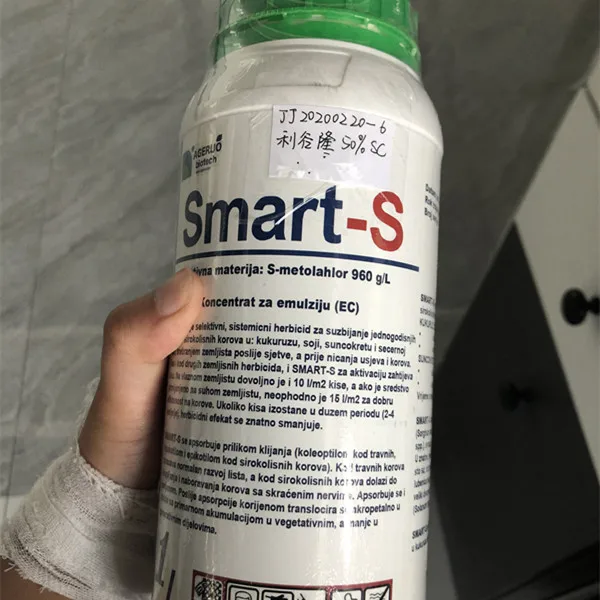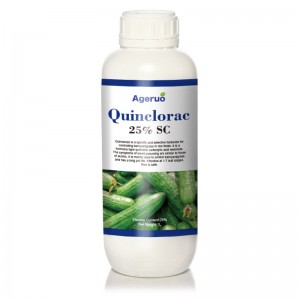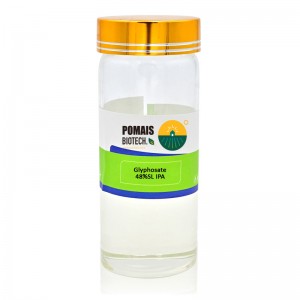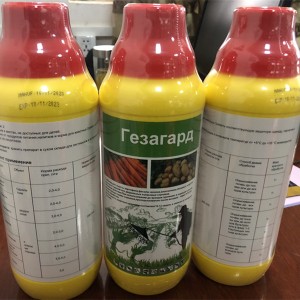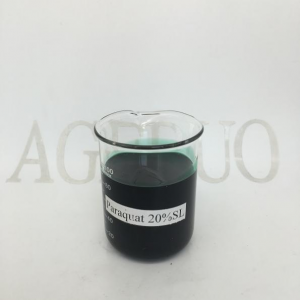Products
POMAIS Herbicide Linuron 500 G/L EC SC | High Efficiency Agricultural Pesticide
Introduction
| Active ingredients | Linuron |
| CAS Number | 330-55-2 |
| Molecular Formula | C9H10Cl2N2O2 |
| Classification | Herbicide |
| Brand Name | POMAIS |
| Shelf life | 2 Years |
| Purity | 360G/EC |
| State | Powder |
| Label | Customized |
| Formulations | 50% SC; 50% WDG; 40.6% SC; 97% TC |
Mode of Action
Linuron is a highly effective selective systemic herbicide, absorbed mainly through roots and leaves and transferred mainly in the xylem tip. It has systemic conductive and touch killing effects with high efficacy. It interferes with photosynthesis and eventually leads to weed death. Due to its selectivity, linuron is safe for crops at the recommended dosage, but has a significant effect on sensitive weeds. Clay particles and organic matter in the soil have a high adsorption capacity for linuron, so it needs to be used at higher rates in fertile clay soils than in sandy or thin clods.
Suitable crops:
Linuron is widely used in a variety of crop fields, including: Celery,Carrots,Potato,Onions,Soybeans,Cotton,Corn.

Act on these Pests:
Linuron has good control effect on many kinds of broadleaf weeds and annual grass weeds, such as: Matang,Dogwood,Oatgrass,Sunflower.

Using Method
The method of application and dosage of linuron varies depending on the crop and weed species. Generally, it can be applied by spraying before or at the beginning of weed emergence. The application rate needs to be adjusted according to the specific soil type and weed density.
|
Formulations |
Linuron 40.6% SC,45%SC, 48%SC, 50%SC Linuron 5%WP, 50%WP, 50% WDG, 97% TC |
|
Weeds |
Linuron is used for pre- and post-emergence controlling of annual grass and broad-leaved weeds, and some seedling perennial weeds |
|
Dosage |
Customized 10ML ~200L for liquid formulations, 1G~25KG for solid formulations. |
|
Crop names |
Liguron is used in soybeans, corn, sorghum, cotton potatoes, carrots, celery, rice, wheat, peanuts, sugar cane, fruit trees, grapes and nurseries to control barnyardgrass, goosegrass, setaria, crabgrass, polygonum, and pigweed. , purslane, ghostgrass, amaranth, pigweed, eye cabbage, ragweed, etc. It can be used to control single and dicotyledonous weeds and certain perennial weeds in crop fields such as soybeans, corn, sorghum, various vegetables and fruit trees, and forest nurseries. |
FAQ
Q: How to start orders or make payments?
A: You can leave a message of products you want to buy on our website, and we will contact you through E-mail asap to provide you more details.
Q: Could you offer free sample for quality test?
A: Free sample is available for our customers. It is our pleasure to provide sample for quality test.
Why Choose US
1.Strictly control the production progress and ensure the delivery time.
2.Optimal shipping routes selection to ensure delivery time and save your shipping cost.
3.We cooperate with customers all over the world, ans provide pesticide registration support.




